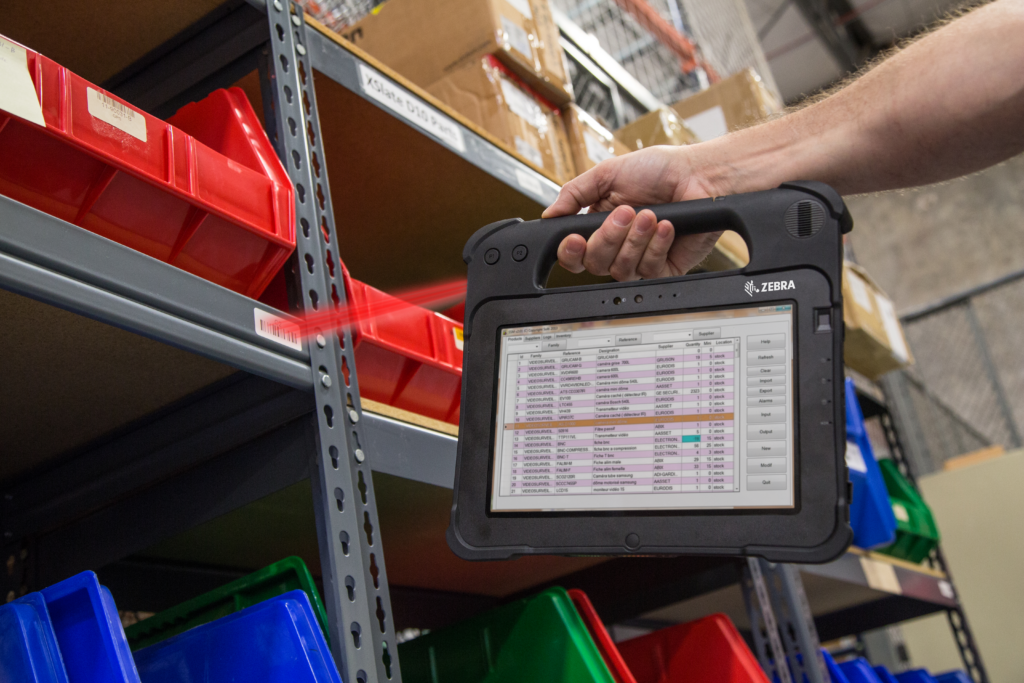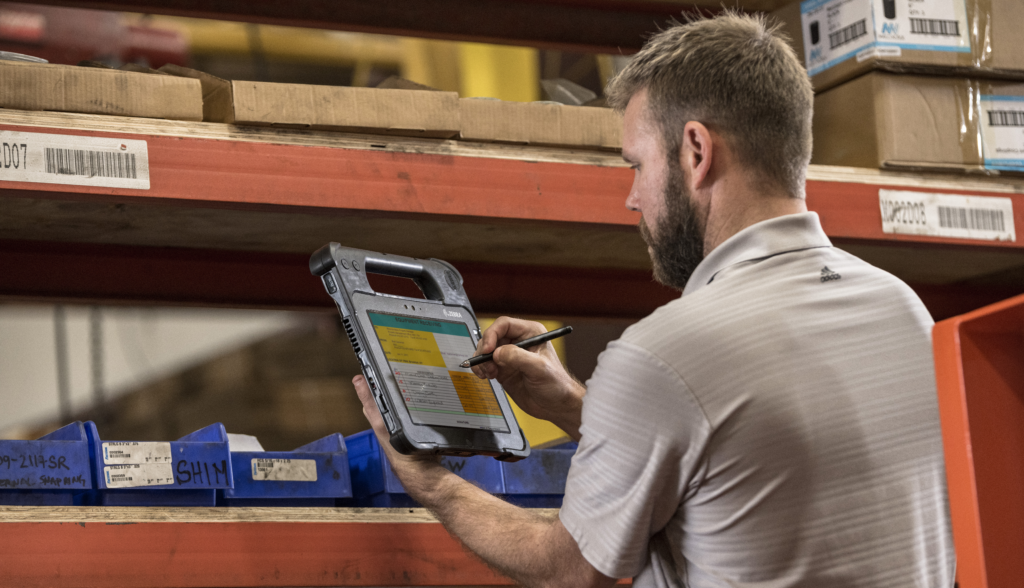
Rugged Tablets vs Consumer Grade Devices: Choosing the right device for your business

The debate around choosing rugged tablets or consumer-grade devices as the primary device for your business has been ongoing for years. With the introduction of new technology and new features in both devices, it is vital to take a step back and consider the various factors that come into play when making a decision.
What does “purpose-built” mean?
When choosing a device for your business, you may come across the term “purpose-built.” It refers to devices designed specifically for business use to meet enterprise customers’ specific needs. A purpose-built device is typically optimized for performance, security, and reliability and is made with enterprise-grade components. Purpose-built devices differ from consumer-grade devices, which are designed for personal use and may not have the same performance, security, nor reliability level as enterprise-grade devices.
So why choose a rugged tablet over a consumer-grade device for your business? Rugged tablets are designed to withstand harsh or demanding environments, thanks to their hardened specifications. These features include drop specification, which refers to the height a device can be dropped onto a hard surface without sustaining damage. Another feature is tumble specification, which are conducted using a specification-defined test device that rotates while the device is inside causing the device to free-fall drop, tumble, bump and scrape similar to clothes in a dryer while still functioning properly. Rugged tablets even meet military standards (MIL-STD) for durability, which include the abilities to withstand temperature extremes, vibration, shock, and more.
Rugged tablets provides more versatile than consumer-grade devices, with a larger screen that’s better for productivity and multi-tasking, plus a larger removeable battery better suited for longer mobile working hours and hot swappable to ensure no down time. These features make rugged tablets a better choice for businesses that require a durable and reliable device for their workforce.

Source: Zebra Technologies
Verticals that can utilise tablets
With a tablet’s larger screen in the transportation and logistics industry, drivers can use a device to view delivery instructions, access maps, and complete forms easily. Workers can use the tablet in a warehouse setting to manage inventory, scan barcodes, and track shipments.
Retail associates, delivery drivers, and others understand the importance of mobile technology in their work and can utilise handheld portable computers with built-in scanners. A study by Zebra Technologies found that 85% of retail associates worldwide feel they could provide a better customer experience with such devices. These enterprise-grade tablets are more suitable for job requirements than consumer-grade tablets.
Tablets are not limited to just retail and logistics industries; they can also be used by government agencies, such as border control and emergency services, for mobile data collection and communication. Retailers can use tablets for customer engagement, displaying product information and conducting transactions. Healthcare professionals can use tablets for electronic medical records, telemedicine, and patient monitoring.

Source: Zebra Technologies
Different tablets tailored to different industry needs
When choosing a tablet for your business, the most crucial factor is finding one that is purpose-built for your specific industry’s needs. For example, a tablet used in a warehouse setting may require durability for handling, long battery life for extended shifts, and a barcode scanner for inventory management. The tablet’s operating system is also a critical consideration. Windows tablets are often used in these settings to offer compatibility with a wide range of enterprise applications.
A tablet used by a healthcare professional may require features such as a medical-grade certification for sanitary use, a large and clear screen for displaying medical information, and secure storage for sensitive patient data. Android tablets are commonly used in the healthcare industry due to their flexibility and customizable nature. These requirements reflect the specific demands of each industry and underscore the importance of choosing a purpose-built tablet with the appropriate operating system, ruggedisation and peripherals for the intended use.

Source: Zebra Technologies
Why good after-sales support and regular security patches are important
Having good after-sales support is crucial when it comes to enterprise-grade devices. This support can help you resolve any issues or problems with your device and ensure that it remains secure and reliable. Regular security patches are essential to keep your device safe, particularly for enterprise-grade devices that are used for business operations involving sensitive information. This can help prevent potential data breaches and maintain the security of your device.
Choosing the right device for your business is a crucial decision, and purpose-built tablets, like those offered by Zebra, are designed specifically for business use and are optimised for performance, security, and reliability.
Zebra rugged tablets offer customisable features such as keyboards, additional extended capacity hot-swappable batteries, and integrated scanners to fit the specific demands of your working day. Choose from Windows 10 or Android operating systems and stay connected from virtually anywhere.
Ready to find the perfect tablet for your business? Take the survey from Zebra to determine which tablet would best suit your organisation’s needs.
READ MORE
- 3 Steps to Successfully Automate Copilot for Microsoft 365 Implementation
- Trustworthy AI – the Promise of Enterprise-Friendly Generative Machine Learning with Dell and NVIDIA
- Strategies for Democratizing GenAI
- The criticality of endpoint management in cybersecurity and operations
- Ethical AI: The renewed importance of safeguarding data and customer privacy in Generative AI applications
